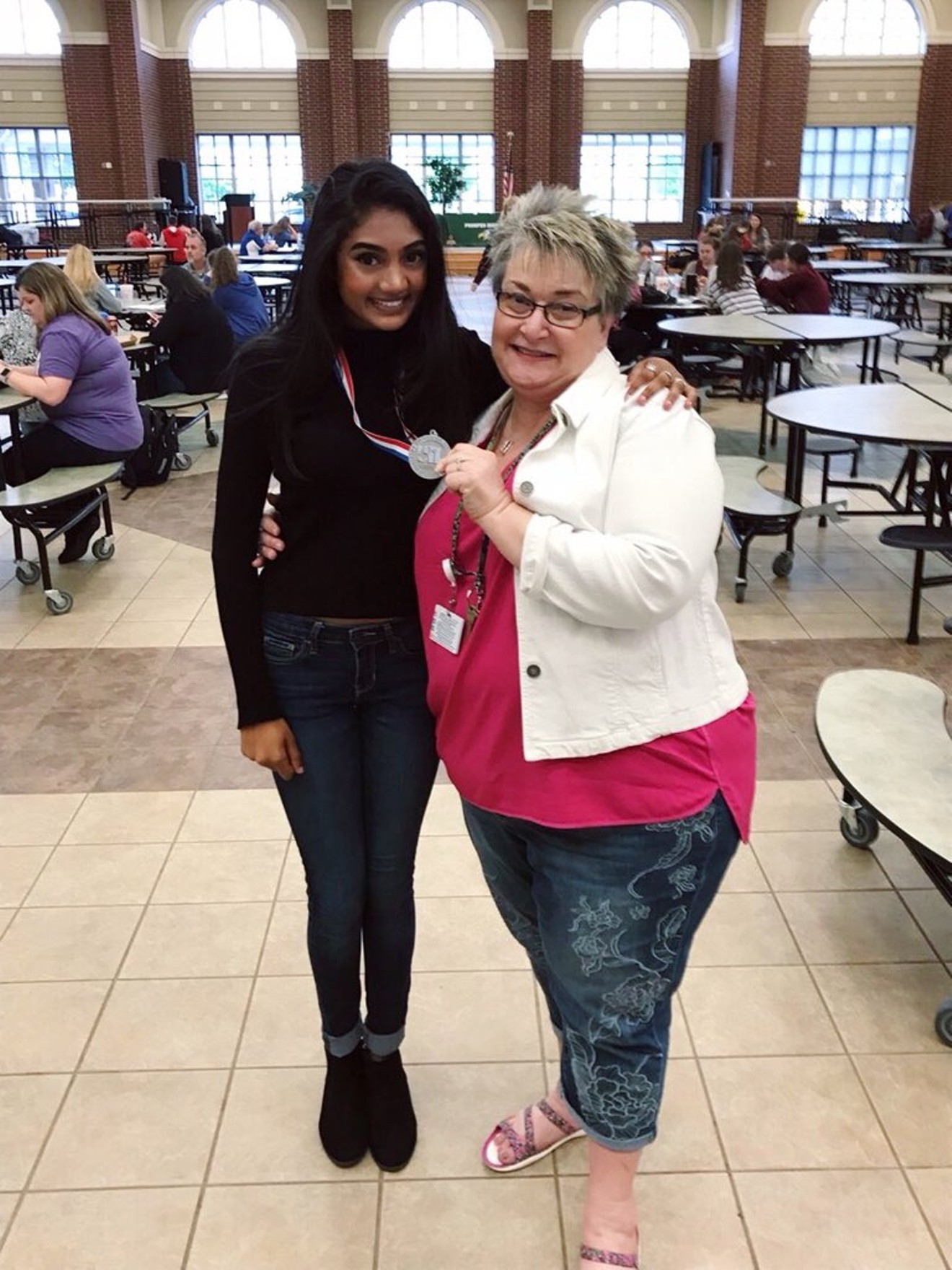Prosper High School principal John Burdett took a hard line against stories and editorials written by students that he deemed to be controversial or put the school in a bad light. Some of the stories included reports about the removal of a book from a sophomore reading list because of objections from students over its homoerotic allusions. Others were about the mismanagement of an annual recreational event for the senior class and teachers who tried to prevent students from participating in the National Walkout Day protests against gun violence by staging a mandatory moment of silence, Eagle News Online's editor-in-chief Neha Madhira and student journalist Haley Stack said in June.
The Dallas Observer has learned through members of the student newspaper's staff and the Student Press Law Center (SPLC) in Washington, D.C., that Burdett reversed his policies on the student newspaper's publishing powers and will let the students write editorials and stories without requiring his final approval regardless of the content.
"We’re just so grateful it happened because we were still preparing to keep fighting the policy and didn’t expect him to do that,""We’re just so grateful it happened because we were still preparing to keep fighting the policy and didn’t expect him to do that." – Neha Madhira
tweet this
Madhira says she first heard the good news after meeting with the school's new journalism adviser, Lisa Roskens, before the start of the school year earlier this week.
"We made a document with all of our goals on it and the things we did last year that we were used to doing so she had an idea what to expect,"
SPLC senior legal consultant Mike Hiestand says Burdett's decision even caught them off-guard. The nonprofit advocacy group sent a letter to Burdett and the Prosper Independent School District urging them to overturn the policy or they would take action to help preserve the student paper's autonomy. The organization was looking at finding legal representation for the students before Burdett changed his mind.
"It came as a bit of a surprise to all of us, and it's certainly a welcome surprise," Hiestand says. "We and the various organizations that signed the letter are going to be watching closely to [see] what happens over the course of the semester, and right now, the signs seem positive."
The difficulties between the students and the principal also led to the forced retirement of the students' journalism teacher and adviser, Lori Oglesbee-Petter, an educator who received state and national acclaim for her work from groups like the Journalism Education Association and the Texas Association of Journalism Educators.
Oglesbee-Petter says she's pleased to hear that her former students are able to create a newspaper they are dedicated to producing without the influence of external editorial decisions.
"Their voices were heard," Oglesbee-Petter says. "They’ve learned lessons that will shape them for the rest of their lives."
Part of the change may have been due to the local and national attention the high school received after the students' ordeal with the principal and Oglesbee-Petter's retirement.
"We're going to hold him accountable to what he said," Madhira says. "It's going to be out there that they changed the policy just like they put the policy in place, and that was one of the biggest factors in changing their mind."
Hiestand says the SPLC will also continue to monitor the school to make sure the newspaper can operate without interference.
"Talk is cheap, and we're going to be watching pretty carefully, but it's positive talk at least," he says. "Our job right now and the job of other organizations who expressed interest in following this is simply to be witnesses and be a good ear, so if the editors are having problems, they know the place they can call and we'd go back to find an attorney to challenge all this. This is certainly a much more positive way to do it."
Further action could also be taken if the Texas Legislature introduced some kind of legislation to ensure the students' autonomy. The SPLC's New Voices advocacy group urges state legislatures to pass laws protecting student journalists from censorship. According to the group, 15 states have student journalism protection laws on the books and Texas isn't one of them.
"This situation proves even more why the Texas Legislature should pass the New Voices legislation so they will not be at the whims of the principal who, like [at] most Texas schools, will be there fewer than three years," Oglesbee-Petter says. "Journalism informs readers on issues from local to national. Without an informed electorate, democracy fails. Democracy looks safe in the hands of high school students like Neha and Haley."
Attempts were made to reach the Prosper ISD and Burdett for comment, but messages left with the district's public information office were not returned.












